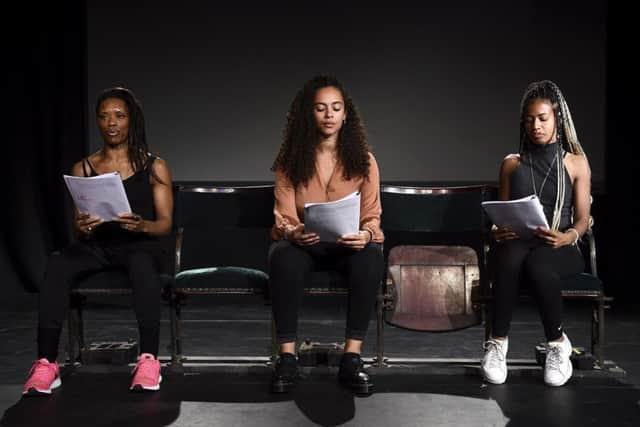Stage play inspired by Sheku Bayoh to examine Scotland’s racist underbelly
The Royal Lyceum in Edinburgh is working with an acclaimed poet and writer on Lament for Sheku, which will examine how much prejudice exists in Scotland’s institutions and in our wider society.
Hannah Lavery, who has already created a spoken word show recalling her experiences of growing up in a mixed-race family in Edinburgh, said the play was aimed at revealing the human tragedy behind the Sheku Bayoh case, which triggered accusations of racism within Police Scotland.
Advertisement
Hide AdShe has drawn from the previous testimonies of relatives, lawyers, police officers and politicians for her script.


The play, which is being staged in workshop form at the Edinburgh International Festival, recalls the long-running campaign to secure justice for Mr Bayoh, who died after being restrained by police officers in Kirkcaldy in Fife, in 2015. His family were told there would be no criminal charges against any police officers. They are still waiting to be told whether there will be a fatal accident inquiry.
Lavery was approached by David Greig, artistic director of Royal Lyceum, with the idea for a play inspired by the Bayoh case, after reading the script of The Drift, which examined her own complex relationship with Scotland.
Greig said: “I was wondering why people did not really seem to know about the case of Sheky Bayoh and also why Scottish theatre didn’t really seem to be engaged with it.
“I don’t really want to think badly of Scotland. I yearn for it to be brilliant and the best. I don’t really like to think of it not being so. I think this play challenges that.
“What Hannah has done has brought the human story of a person who was otherwise just a name and a picture in a newspaper back and also put it into that much wider context.”
Advertisement
Hide AdLavery said: “I grew up in a very white Edinburgh in the 1980s. I have quite explicit and common memories of racism growing up. That struggle to belong is very much part of who I am. It’s hard to say things are getting better.
“There is the rise of the far right in Scotland. I found the Brexit referendum very painful. A lot of things people would only have said in their own homes they are now saying more publicly. It’s in your face more now.
Advertisement
Hide Ad“When I committed to write the play I had to acknowledge that I had not really engaged with the story of Sheku. It was maybe a protective thing. When I tell people I’m doing the play the reaction is often ‘Sheku who?’
“I started looking into what had been reported about Sheku. I read every article and what had been said about him. It got to the point where I thought: ‘This all has to be laid out.’
“The play is a personal response. It feels like an act of love. I love my country, but we can be better. Loving someone is not loving blindly. People might feel it is not the Scotland they know, but it is the Scotland I know.”